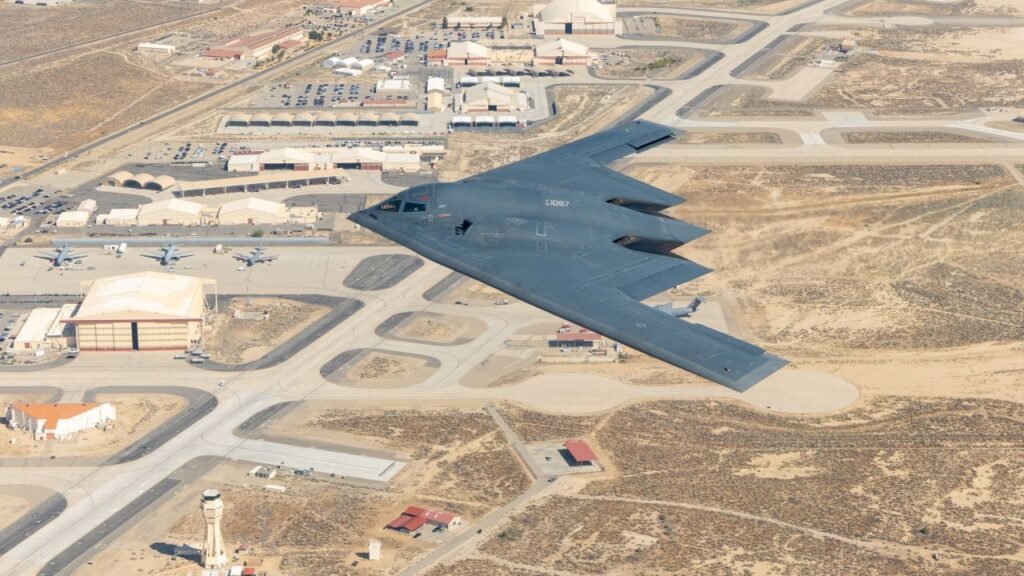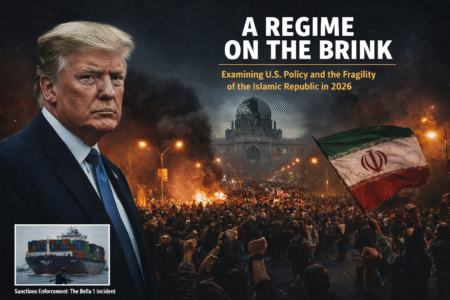
The United States has conducted a series of precision airstrikes against the Iran-backed Houthi rebels in Yemen, marking a significant escalation in its efforts to counter the group’s regional activities. On Wednesday, B-2 Spirit stealth bombers targeted five underground weapons storage sites in Houthi-controlled territories, according to US Defense Secretary Lloyd Austin. The strikes were authorized by President Joe Biden to degrade the group’s capacity to disrupt maritime trade and endanger military personnel.
Targeting Underground Houthi Facilities
The targeted facilities housed advanced weapon components, including those used for attacks on military and civilian vessels in the Red Sea and Gulf of Aden. Austin emphasized that the use of B-2 bombers—capable of carrying heavy payloads—demonstrated the US’s ability to strike even deeply buried or hardened targets. “This operation showcases our global strike capability to act anytime, anywhere, against threats that seek to remain out of reach,” Austin said.
US Central Command (CENTCOM) confirmed that both Air Force and Navy assets were involved in the operation, and early assessments indicated no civilian casualties.
Escalation of Houthi Attacks
The strikes come amid heightened tensions in the Middle East, with the Houthis intensifying their drone and missile attacks on ships and other assets. The rebel group, aligned with Iran, has carried out over 100 such attacks since the start of the war in Gaza. In recent months, the Houthis claimed responsibility for launching ballistic and cruise missiles at US Navy vessels and even firing drones and missiles toward Israel in support of Hamas and Hezbollah. While US ships avoided damage during these incidents, the Houthis have caused severe disruptions, including environmental damage from attacks on oil tankers.
Aimed at Countering ‘Destabilizing Behavior’
Austin stressed that the strikes were necessary to degrade the Houthis’ offensive capabilities and deter further aggression. “We will not tolerate reckless attacks on our personnel or disruption of critical waterways,” he said, adding that the Houthis’ ongoing actions posed a threat to international trade and stability in the region.
The US has previously collaborated with the UK in targeting the Houthis but carried out Wednesday’s operation independently. In recent weeks, Washington has stepped up its military presence in the region, deploying additional naval vessels, fighter jets, and an advanced anti-missile system to Israel amid growing concerns over Iranian proxies.
Regional Concerns Over Escalation
The strikes come as the UN warns that Yemen could become further entangled in the broader regional conflict. Hans Grundberg, the UN’s special envoy for Yemen, told the Security Council that the escalation of violence threatens to undermine hopes for peace in Yemen. “Like many in the Middle East, Yemenis are watching their hopes for a brighter future overshadowed by the risk of catastrophic conflict,” Grundberg said.
The situation remains tense as the Houthis continue to justify their attacks as support for Palestinians in Gaza, while regional powers like Israel have vowed retaliation. Israeli Prime Minister Benjamin Netanyahu previously warned that the Houthis would face severe consequences for targeting Israel.
As Washington signals its readiness to act decisively against threats, the strikes on Houthi targets highlight the ongoing complexities of the Yemen conflict and the growing entanglement of proxy forces in the broader geopolitical landscape.
Sources: CNN, Aljazeera






